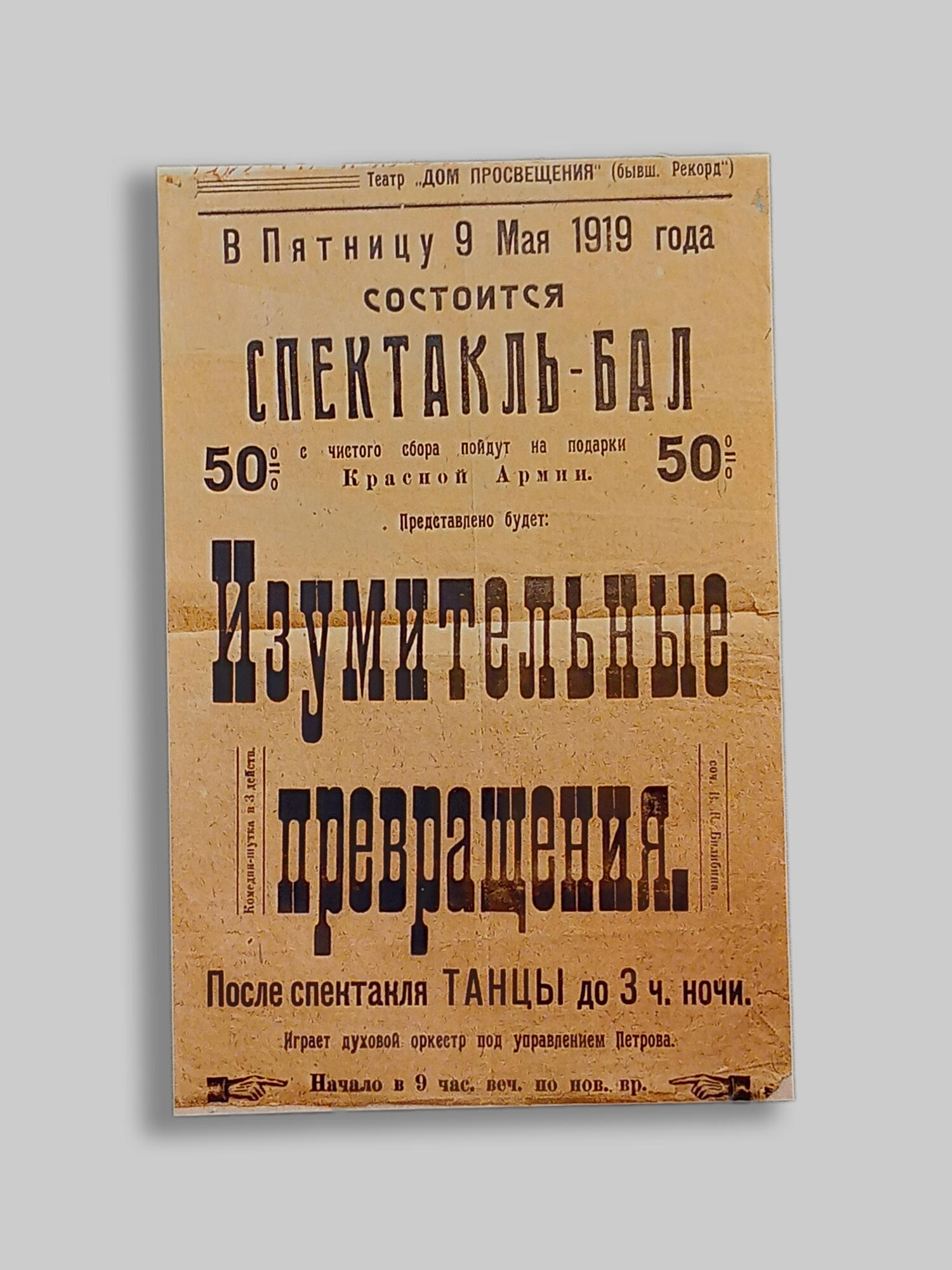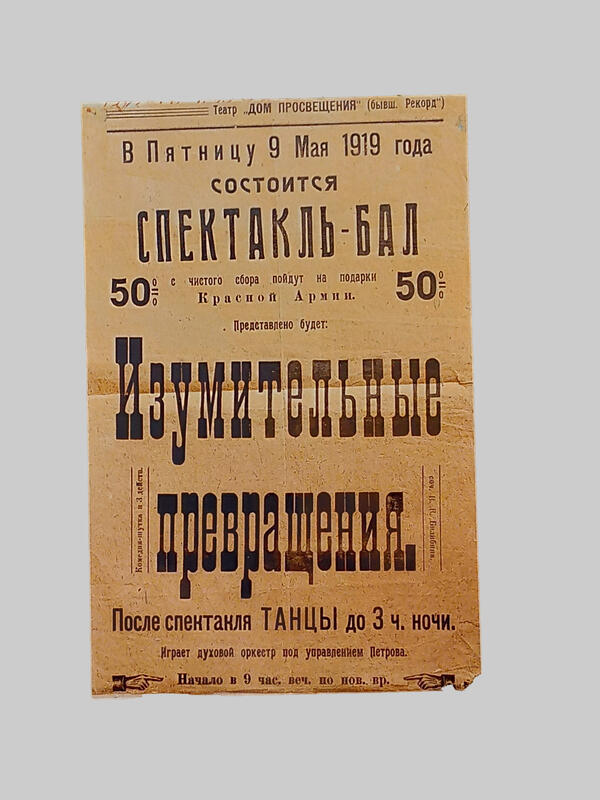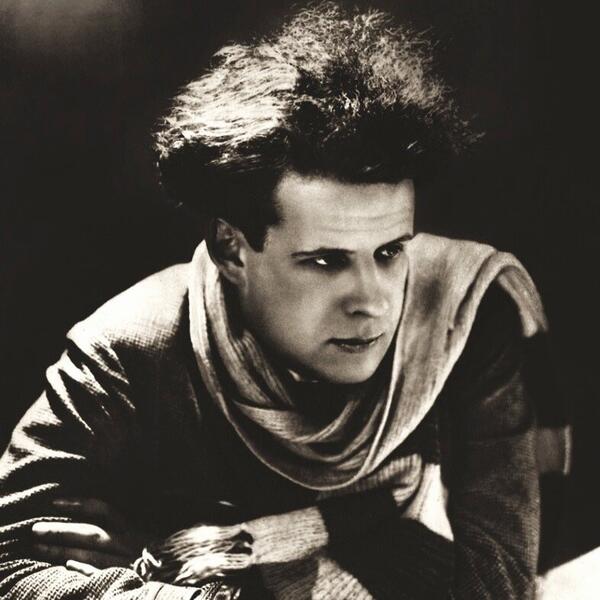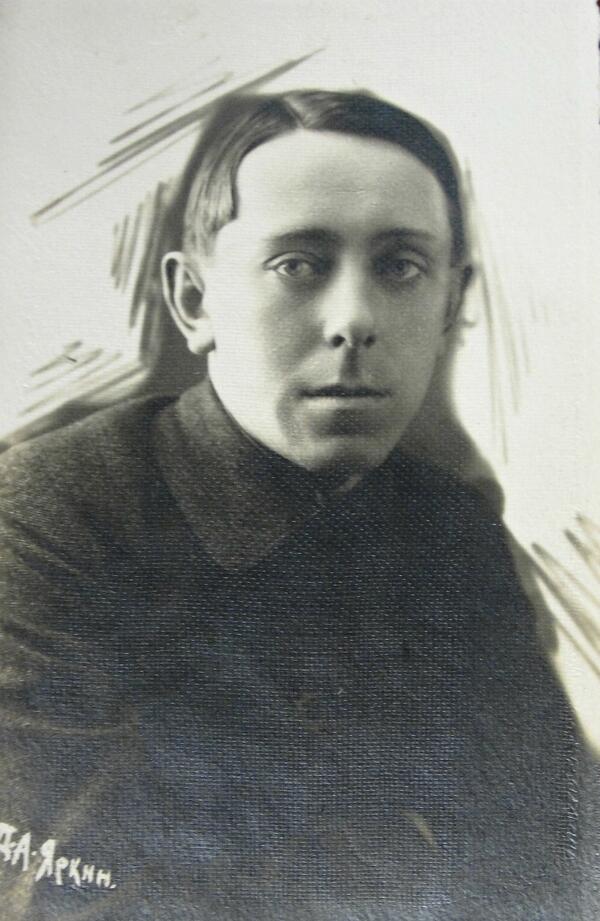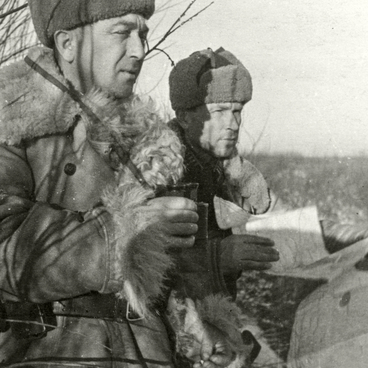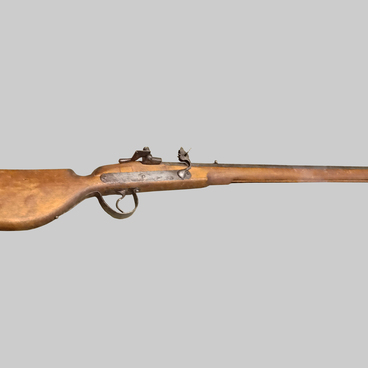The museum’s funds hold several theater posters of 1919, which introduce the repertoire of the House of Enlightenment theater and its cast. Some posters are displayed in the historical exposition dedicated to the history of VelIkiye LUki, as the development of theater significantly contributed to the cultural and educational life of the city after the 1917 revolution.
The first mention of a theater in Velikiye Luki can be found in Mikhail Semevsky’s essays published in 1857.
The first mention of a theater in Velikiye Luki can be found in Mikhail Semevsky’s essays published in 1857.
According to them, in the middle of the 19th century there was already a theater in the city. At the turn of the 19th–20th centuries, theater was a part of the life and culture of provincial cities, including such a small town as Velikiye Luki was at that time. Visiting actors performed at the Modern and Record cinemas and on the open-air stage of the Summer Garden.
The city’s theatrical life became especially active after the events of October 1917. Theater played an important role in the struggle for cultural transformation. This was clearly manifested in the life of the front-line city of Velikiye Luki: by 1918, a large number of military units, field hospitals, refugees and Cossacks of General Krasnov’s Don Cossack Corps were concentrated there.
Creative intellectuals, actors, directors, musicians, singers, travelled from PetrogrAd to the provinces, including VelIkiye LUki. They initiated the creation of private, professional, semi-professional or just amateur drama associations, clubs and circles in the city.
In January 1918, a 34-year-old warrant officer, World War 1 participant, and professional singer, tenor Fedon (Iosif Miloslavsky) came to Velikiye Luki. He created a partnership of opera and drama artists which staged the operas Rusalka, Eugene Onegin and the operetta Der Fürst der Berge (The Mountain Prince) in the city. By the end of the year, in the city there were several drama collectives and the drama troupe of the Dom Prosveshchenia theater, which was in charge of the activities of all theater collectives.
In 1919 several fit-up front-line theaters were based in Velikiye Luki. The city housed headquarters of the 18th Military Construction Unit and the political department of the 15th Army, where future director Sergei Eisenstein served as a staff member. The stay in Velikiye Luki is an important period of Eisenstein’s theater career. Here he staged and designed three plays: The Mirror by F.M. Sluchayny, The Double by A. Averchenko and “Marat” by A. Amnuel, and he worked as a stage designer on Romain Rolland’s play The Fourteenth of July.
The employees of the theater section of the arts subdivision, with the new head Dmitry Yarkin, were engaged in the active development of theater in the city and in the district. By mid-1919, the drama troupe of the Dom Prosveshchenia theater was formed. Little information has been preserved about it, but it is known that in the same year it staged the plays The Lower Depths, The Storm, The Forest, and also commissioned a number of plays, including A Bitter Fate, Amazing Transformations and many others.
The city’s theatrical life became especially active after the events of October 1917. Theater played an important role in the struggle for cultural transformation. This was clearly manifested in the life of the front-line city of Velikiye Luki: by 1918, a large number of military units, field hospitals, refugees and Cossacks of General Krasnov’s Don Cossack Corps were concentrated there.
Creative intellectuals, actors, directors, musicians, singers, travelled from PetrogrAd to the provinces, including VelIkiye LUki. They initiated the creation of private, professional, semi-professional or just amateur drama associations, clubs and circles in the city.
In January 1918, a 34-year-old warrant officer, World War 1 participant, and professional singer, tenor Fedon (Iosif Miloslavsky) came to Velikiye Luki. He created a partnership of opera and drama artists which staged the operas Rusalka, Eugene Onegin and the operetta Der Fürst der Berge (The Mountain Prince) in the city. By the end of the year, in the city there were several drama collectives and the drama troupe of the Dom Prosveshchenia theater, which was in charge of the activities of all theater collectives.
In 1919 several fit-up front-line theaters were based in Velikiye Luki. The city housed headquarters of the 18th Military Construction Unit and the political department of the 15th Army, where future director Sergei Eisenstein served as a staff member. The stay in Velikiye Luki is an important period of Eisenstein’s theater career. Here he staged and designed three plays: The Mirror by F.M. Sluchayny, The Double by A. Averchenko and “Marat” by A. Amnuel, and he worked as a stage designer on Romain Rolland’s play The Fourteenth of July.
The employees of the theater section of the arts subdivision, with the new head Dmitry Yarkin, were engaged in the active development of theater in the city and in the district. By mid-1919, the drama troupe of the Dom Prosveshchenia theater was formed. Little information has been preserved about it, but it is known that in the same year it staged the plays The Lower Depths, The Storm, The Forest, and also commissioned a number of plays, including A Bitter Fate, Amazing Transformations and many others.
